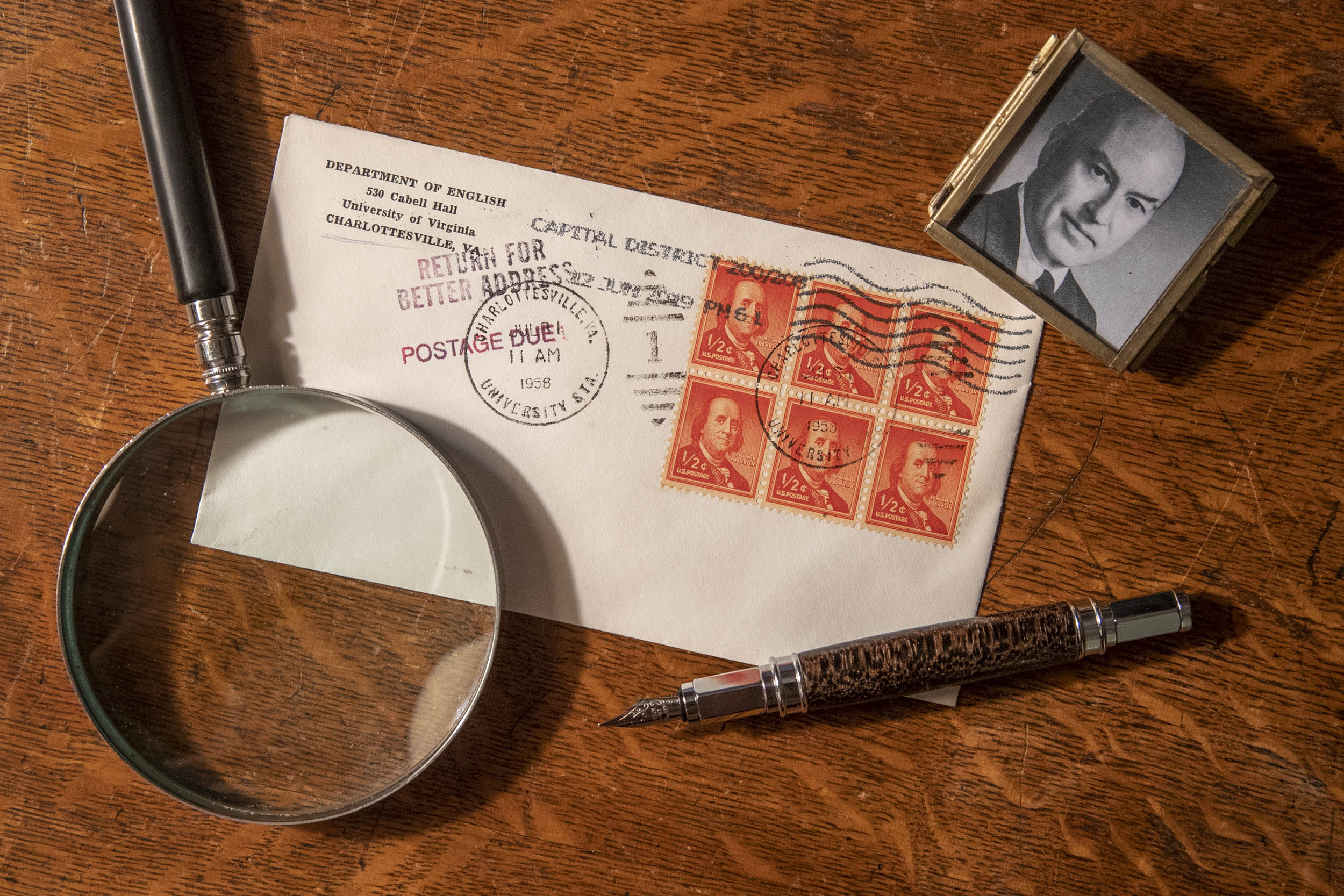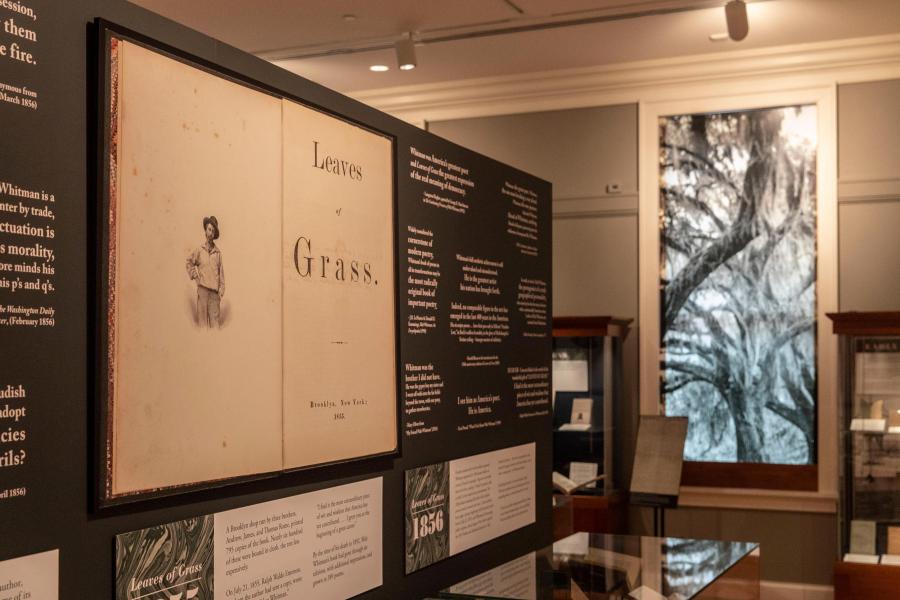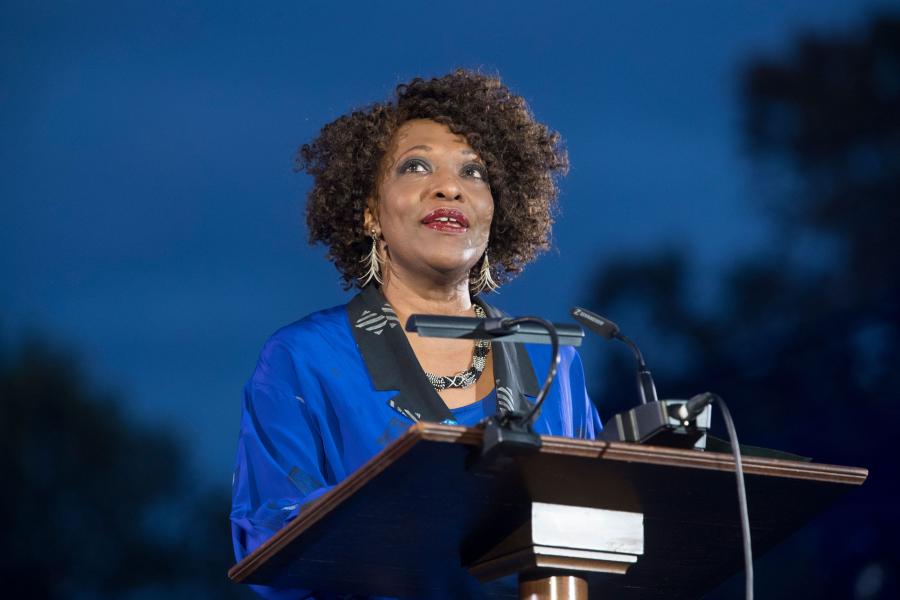A small envelope arrived in the English Department a couple of weeks ago, returned for insufficient address and postage. In fact, it wasn’t addressed to anyone at all and the envelope was empty. It had the University of Virginia’s Department of English as the return address with its mid-20th century location in Cabell Hall.
Then office administrator Colette Dabney noticed the circular postmark – from 1958!
She was stunned when she realized, “I was holding a bit of department history that took 61 years to be returned to sender,” she said recently. Besides the Charlottesville and University Station postmark with the date July 31, 1958, 11 a.m., the envelope also has a modern cancellation date of June 12, 2019 from the “Capital District.”
Dabney alerted English professor and bibliographer David Vander Meulen, who put on his sleuthing hat and offered his best explanation.
“It seems to me that it was prepared by someone with philatelic interests or understanding, and I think Fredson Bowers would be a prime suspect,” Vander Meulen said from the department’s current home in Bryan Hall. “But that doesn’t explain where the envelope has been the past six decades.”
Bowers, an English professor on Grounds from 1938 to 1975 who chaired the department for seven years, is credited with building the faculty and the department’s reputation, partly through his and others’ bibliographical scholarship. The English department’s small library is named for Bowers, who died in 1991.





